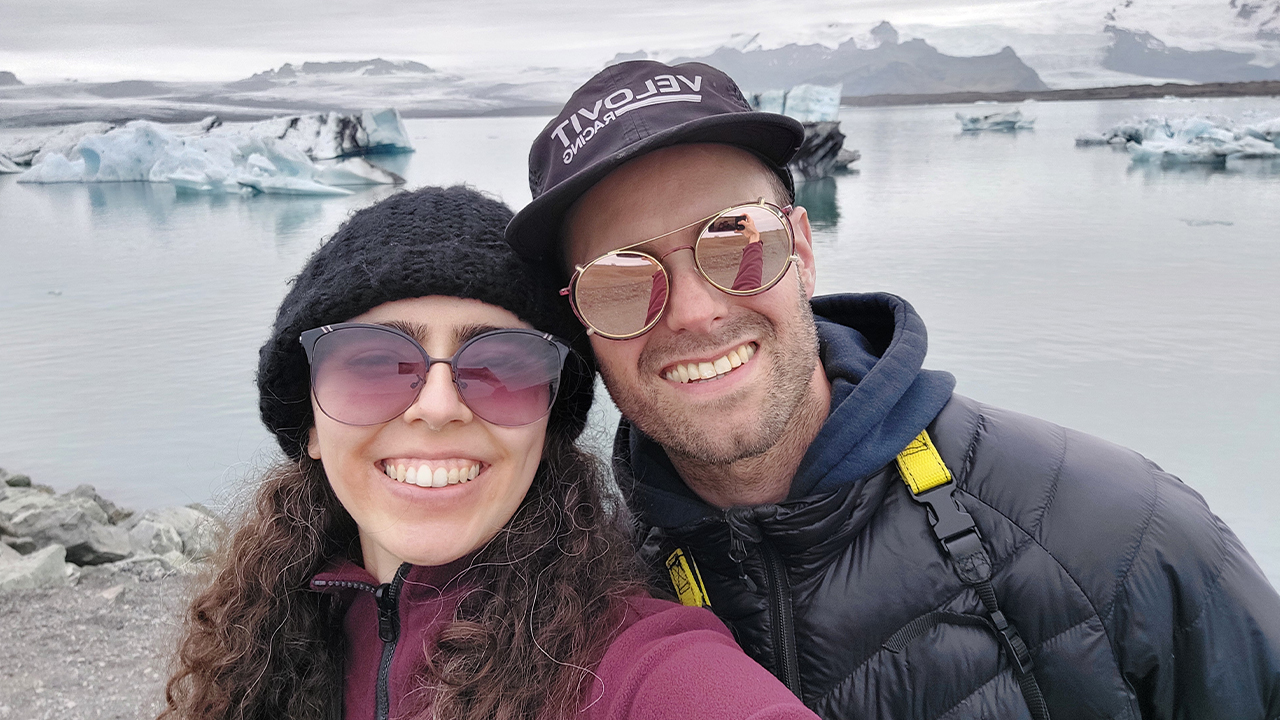
Each year at Convocation, The University of Wisconsin-Platteville celebrates outstanding faculty and staff through a series of prestigious awards. These honors recognize exceptional contributions in teaching, service, leadership and engagement. This year, we're taking a more personal approach—spotlighting the individuals behind the accolades and the stories that drive their impact.
UW-Platteville has awarded Michael Lambert, lecturer in the Humanities Department, with the Academic Staff Award for Excellence. This award is presented to an instructional or non-instructional academic staff member with a minimum of 12 consecutive months of employment at UW-Platteville who has provided essential services to the university while demonstrating excellence of performance, personal interaction, initiative and creativity.
Q: What is your official title and what do you do within the Department of Humanities?
I’m a lecturer in the Humanities Department, and I primarily teach composition courses in the First-Year Writing Program. I’ve also had the chance to teach a few other classes, like a fiction writing workshop, but most of my course load is focused on College Writing I and II.
Q: How long have you held this position?
This year marks the completion of my sixth year of teaching at UW-Platteville.
Q: What do you bring to this role that others may not see or know about?
It’s sometimes hard for me to judge my own strengths as an instructor, but based on student feedback and evaluations, I think I’m able to make a general education, required course actually engaging by bringing real enthusiasm to the subject. I still find that teaching is an incredible opportunity to affect how students view their education, how they see themselves as belonging on a college campus and how they come to see reading and writing as lifelong skills that can open a whole world of ideas.
Q: You graduated from UW-Platteville in 2012 with a Bachelor of Arts in English. Which faculty member made the biggest impact on you during your time here?
I had so many wonderful professors while I was a student that it’s honestly impossible to choose just one who had the biggest impact. Overall, I’m incredibly grateful to everyone in the profession who helped students like me take our ideas and voices seriously.
Q: What is the most interesting trip you have ever taken and why did you take it?
Some scholars argue that Shakespeare invented the modern human. What I think they mean is that Shakespeare changed the way that we view characters in literature in a significant way. While that may be overstated, I think that I have had several formative experiences that helped shape the foundations of the person that I became as an adult. I still always talk about a canoe trip that I took with my older brother down the length of the Mississippi River because it changed my life forever. I have also bicycled along the Pacific Coast north to south and lived in Europe, so I've been lucky with having a supportive family and community that helped give me the confidence to go out and explore the world and myself within it.
Q: What kind of music appeals to you the most (or does it depend on your mood)?
When this subject comes up in my classroom conversations, I like to say that I enjoy "good" music. Of course, this means something different to everyone, and I think that's the point. Music is something that most everyone can relate to in their own way, and I've been fortunate to be able to appreciate and enjoy it throughout my life as both a listener and practitioner. During the most recent 90s themed Spirit Lake Review issue release party in Nohr Art Gallery, I joined Matty Olsen and Max McNett for a rendition of the cult classic, "Teenage Dirtbag," by Wheatus.
Q: What instrument do you play and do you still perform?
I play American primitive fingerstyle acoustic guitar and still perform on occasion.
Q: What would you tell your 16-year-old self now?
My 16-year-old self probably thought that he didn't need to listen to the opinions of people like me, to be honest. Sometimes, the most obvious, ubiquitous truths are the ones that are the hardest to see and talk about. That's a reference to a speech from David Foster Wallace, and it's an idea that I still relate to even now. If I've learned anything since being that age, I think of this simple advice: be kind. It's a lesson they famously teach first-year medical students: "First, do no harm." Pretty basic advice, but important, nonetheless.
Lambert will be recognized at the university’s annual faculty and staff convocation next month.